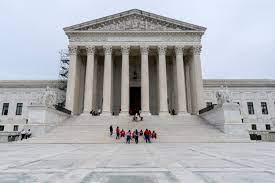Supreme Court Authorizes Criminal Prosecution of Foreign State-Owned Entities

The Supreme Court rejected a challenge by Halkbank, a Turkish state-owned bank, to its criminal prosecution for anti-money laundering violations and evasion of Iran Sanctions. In a 7-2 decision, authored by Justice Kavanaugh, the Supreme Court rejected Halkbank’s claim that it was immune from U.S. federal criminal prosecution. The Supreme Court remanded the case back to the Second Circuit to consider whether the common law surrounding sovereign immunity provided Halkbank a defense of immunity.
Halkbank claimed that it was immune from criminal prosecution in the United States under the Foreign Sovereign Immunities Act (“FSIA”). The Supreme Court ruled that FSIA offers immunity to sovereign nations only in civil proceedings, and specifically held that barring criminal prosecutions under the FSIA would “graft an atextual limitation” on the FSIA.

The Supreme Court’s ruling opens the way for DOJ to prosecute foreign state-owned enterprises in a variety of cases, including FCPA, anti-money laundering, sanctions and other crimes. In rejecting Halkbank’s argument, the Supreme Court noted that the FSIA includes many provisions concerning civil actions, but includes not a word about criminal proceedings against foreign states or their instrumentalities.
Justice Kavanaugh explained that “Congress enacted a comprehensive scheme governing claims of immunity in civil actions against foreign states and their instrumentalities. That scheme does not cover criminal cases.”
Justices Gorsuch and Alito stated in a concurring opinion that remand to the Second Circuit to consider the common law sovereign immunity issue was not necessary. Justice Gorsuch wrote that the Court’s decision “overcomplicates the law for good reason.” Justice Gorsuch stated that lower courts do not have guidance on how to resolve immunity disputes using the common law, including whether to apply norms of international law, which he said supply “no easy answer.”

According to DOJ, Halkbank, which is controlled by the Turkish government, used money service businesses and front companies to circumvent American sanctions prohibiting financial transactions involving the sale of Iranian oil and natural gas. Halkbank laundered around $20 billion in restricted funds on behalf of Iranian oil and natural gas businesses. Approximately $1 billion was laundered through the U.S. financial system. Specifically, Halkbank converted oil revenue into gold and then cash to benefit Iranian interests, and documenting fake food shipments to justify transfers of oil proceeds.
DOJ argued that FSIA does not apply to criminal prosecutions and, even if it did so, Halkbank’s actions fell under the law’s exception to sovereign immunity for misconduct involving commercial activities. A DOJ lawyer argued to the Court that upholding Halkbank’s immunity claim would allow any foreign state-owned enterprise to “become a clearinghouse for any federal crime, including interfering in our elections, stealing our nuclear secrets, or something like here, evading our sanctions and funneling billions of dollars to an embargoed nation.”















